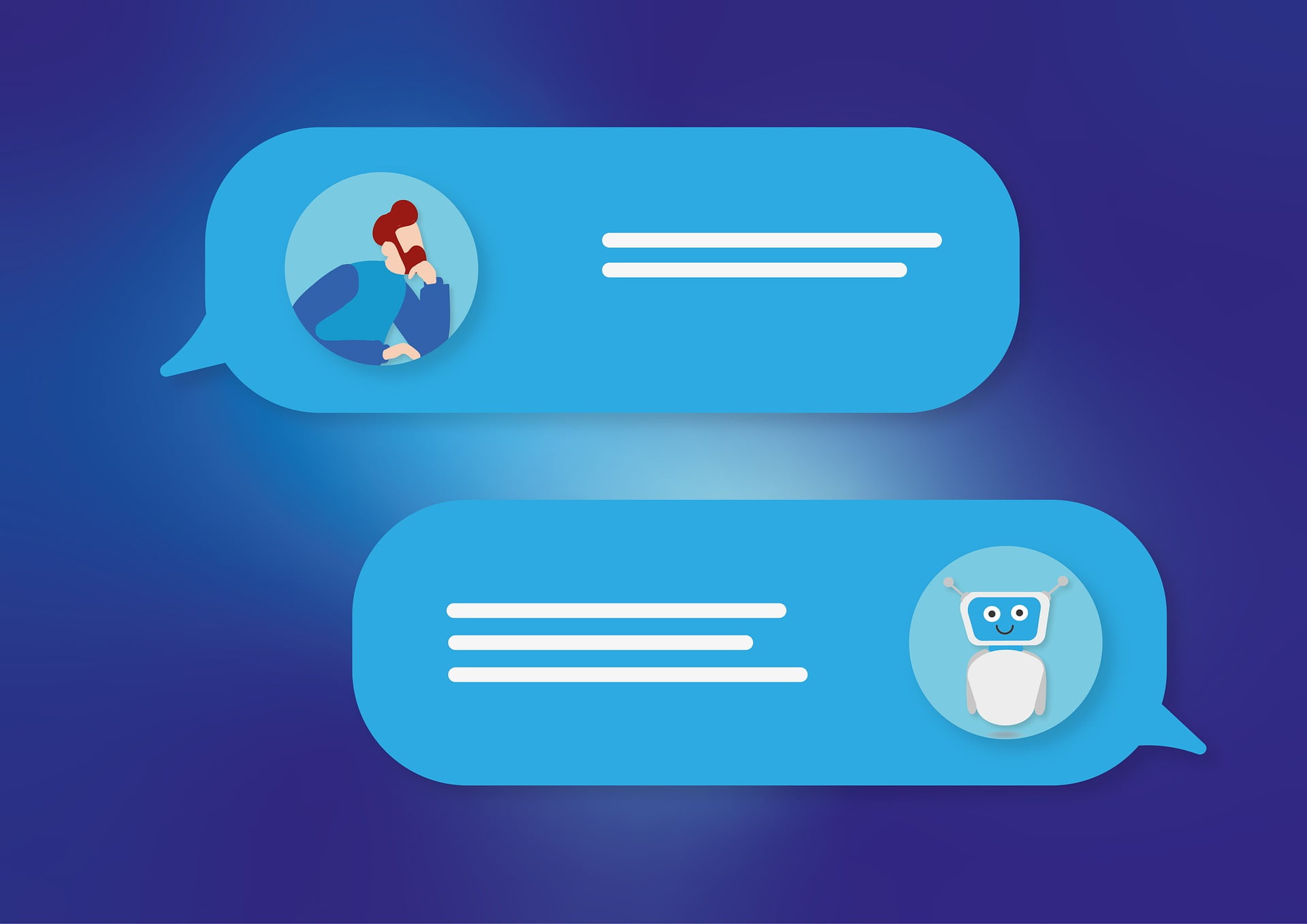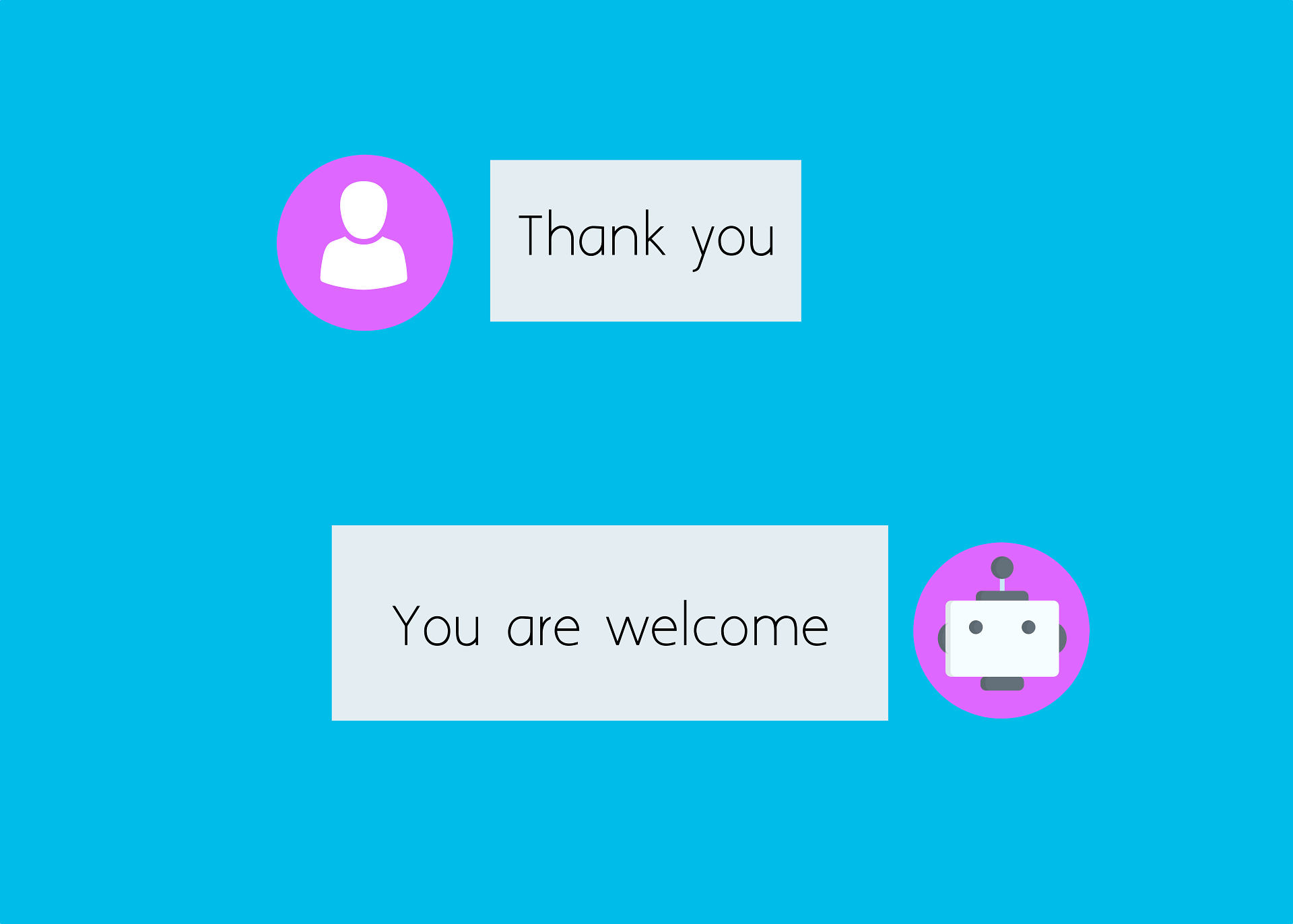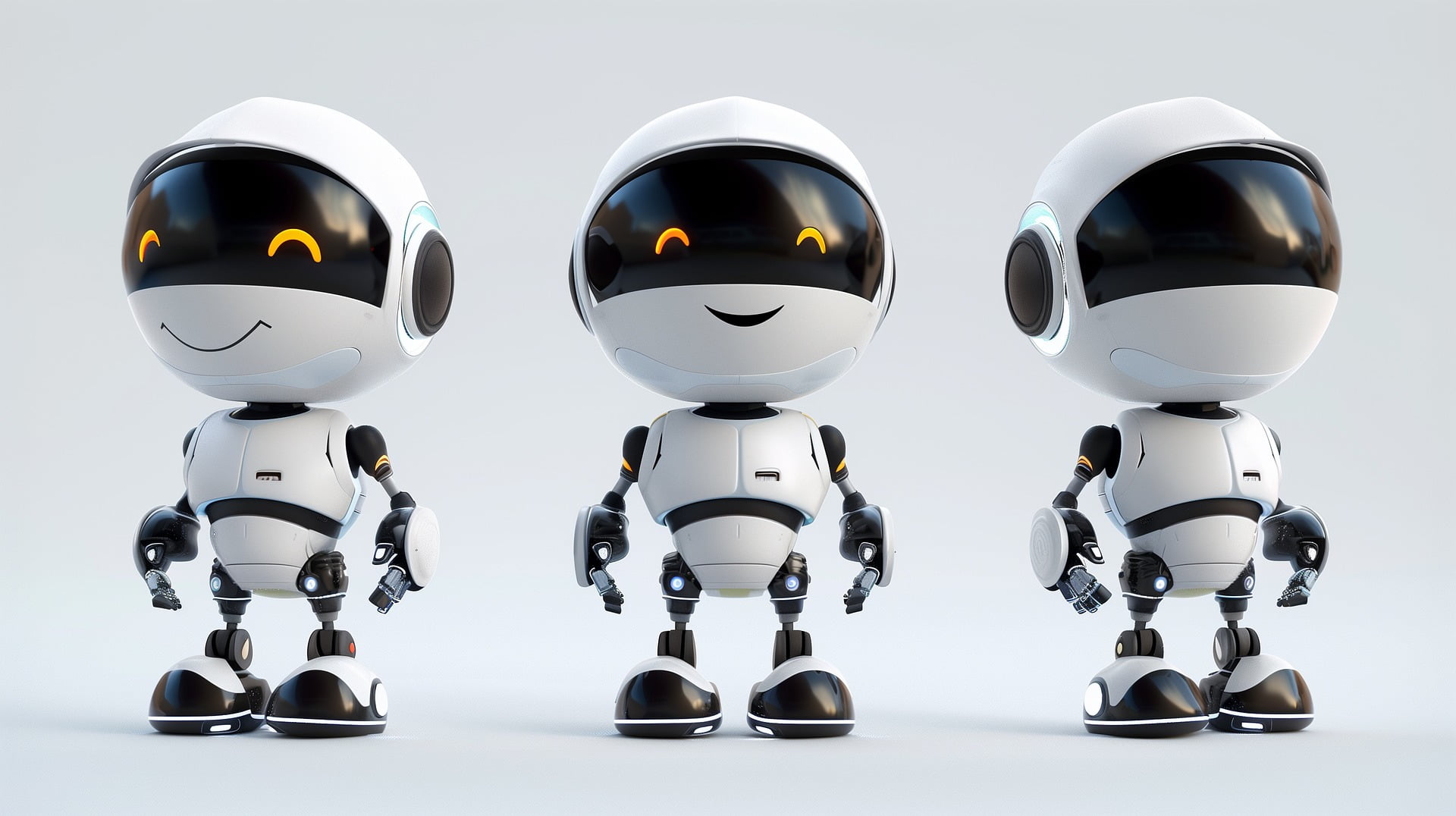
How Chatbots Can Transform Your Website?
A recent study reveals a staggering statistic: 80% of businesses are actively planning to implement AI chatbots by 2024. This surge in adoption underscores the undeniable impact these virtual assistants are having on the online landscape. In the face of this trend, website owners must ask themselves: what are AI chatbots, and how can they revolutionize my website strategy?
Understanding AI Chatbots
But first, let's get acquainted with these intelligent tools. AI chatbots are essentially software programs that utilize artificial intelligence to craft responses to user inquiries in a conversational manner. Imagine a friendly and knowledgeable virtual assistant programmed to answer your questions and guide you through a website. These chatbots come in two primary forms:
These sophisticated chatbots leverage AI and natural language processing (NLP) to generate accurate and human-like responses. Think of having a conversation with a highly trained customer service representative, but virtually. NLP allows the chatbot to understand the intent behind your questions, even if you don't phrase them perfectly. This fosters a natural and engaging interaction that feels closer to a conversation with a real person.
These chatbots function based on predefined rules that dictate their responses. Imagine a decision tree with pre-programmed answers for specific questions. While these chatbots offer a more structured interaction, they may lack the flexibility of AI-powered chatbots. For simpler inquiries, however, they can provide efficient and straightforward answers.
Regardless of their type, AI chatbots are proving to be incredibly versatile. You might encounter them on e-commerce websites assisting you with product selection or on airline websites guiding you through the booking process. They're finding applications in diverse sectors, from customer service to education and healthcare, streamlining interactions and providing readily available support.
The Compelling Advantages of AI Chatbots
Now, let's explore the compelling reasons why AI chatbots are transforming website strategies:
Unlike human representatives who require breaks and follow fixed working hours, AI chatbots are available 24/7, 365 days a year. This ensures continuous support for website visitors, regardless of their location or time zone. Imagine a potential customer from a different time zone with a burning question about your product. An AI chatbot can address their inquiry immediately, keeping them engaged and potentially converting them into a customer.
Compared to traditional support models involving human interaction, AI chatbots excel at delivering prompt answers and solutions. Think about waiting on hold for a customer service representative. AI chatbots eliminate this frustration by providing immediate assistance. This significantly reduces wait times and enhances customer satisfaction by providing immediate attention to their needs.
Implementing AI chatbots on your website proves to be a cost-effective solution compared to traditional human assistance models. Chatbots eliminate the need for salaries, training programs, and infrastructure costs associated with human support staff. Imagine the significant cost savings you can achieve by implementing AI chatbots to handle routine inquiries, freeing up your human support team for more complex issues.
AI chatbots can be programmed to gather valuable customer data during interactions. This data can include names, emails, phone numbers, and even specific questions users ask. Businesses can leverage this data to gain valuable insights into customer behavior and preferences. Imagine being able to analyze the common questions users have on your website. This allows you to identify areas for improvement on your website and tailor your content to better address user needs.
AI chatbots can act as virtual salespeople, guiding potential customers towards relevant product offerings, order forms, and other conversion points. Additionally, chatbots can offer personalized recommendations based on user preferences, further boosting sales opportunities. Imagine a chatbot on your e-commerce website that can answer a user's questions about a specific product, recommend similar items based on their browsing history, and even guide them through the checkout process. This personalized approach can significantly increase the chances of a conversion.
One of the key strengths of AI chatbots is their ability to handle multiple inquiries simultaneously. This scalability ensures that your website can efficiently manage an increasing user base without compromising on responsiveness. Imagine a sudden surge of traffic on your website due to a marketing campaign. AI chatbots can seamlessly handle the influx of inquiries, ensuring a smooth user experience for everyone.
AI chatbots deliver consistent and standardized responses, eliminating inconsistencies that may arise with human interaction. This ensures every user receives a uniform and high-quality service experience. Imagine a user visiting your website for the first time and another who is a returning customer. An AI chatbot can provide the same level of service and information to both users, maintaining a consistent brand image.
By automating routine customer queries and tasks, AI chatbots free up valuable time for human support agents. This allows agents to focus on complex issues that require a more nuanced and personalized approach. Imagine your customer service team being bogged down by simple questions about product availability or order tracking. AI chatbots can handle these inquiries, allowing human agents to dedicate their time to resolving intricate customer issues and building relationships with clients.
Multilingual chatbots can cater to a global audience, breaking down language barriers and expanding your website's reach to international markets. Imagine having a website that can interact with users in multiple languages. This opens doors to new customer segments and allows you to tap into a wider market.
AI chatbots can engage website visitors in interactive conversations, collect their information, and qualify them as potential leads. This facilitates targeted marketing efforts and allows businesses to focus on high-quality leads with a greater chance of conversion. Imagine a chatbot on your website that can qualify a user's interest in your product or service by asking them a series of questions and capturing their contact information. This allows your sales team to target these qualified leads with personalized outreach, significantly improving conversion rates.

Beyond the Advantages: A Look at Potential Drawbacks
While AI chatbots offer a plethora of advantages, it's important to acknowledge their limitations:
AI chatbots, by their very nature, may struggle to comprehend and respond to human emotions. They may miss subtle nuances or emotional context within a user's query, potentially leading to misinterpretations. Imagine a user frustrated with a product and venting their concerns through the website chat. An AI chatbot might struggle to understand the emotional undercurrent and provide a generic response, further aggravating the user.
While cost-effective in the long run, implementing AI chatbots requires an initial investment for setup and ongoing maintenance to ensure optimal performance and keep pace with technological advancements. Imagine the cost of designing, developing, and training an AI chatbot for your website. There are also ongoing costs associated with maintaining and updating the chatbot to ensure it functions effectively.
AI Chatbots and Website Strategy: A Perfect Match
AI chatbots are transforming website strategies in several key ways:
By providing 24/7 availability, fast response times, and personalized interactions, AI chatbots significantly enhance the overall user experience on your website. Imagine a user who gets stuck on a specific page or has a question about a product. An AI chatbot can provide immediate assistance, guiding them through the website and resolving their queries efficiently. This not only improves user satisfaction but also keeps them engaged on your website for longer.
The ability to answer user inquiries promptly is crucial for customer satisfaction. AI chatbots excel at this, ensuring users receive the assistance they need immediately. Imagine a user on your e-commerce website who wants to know if a specific product is in stock. An AI chatbot can answer this question in seconds, eliminating the need for the user to wait for an email response or call customer service.
Chatbots can be programmed to gather user data and preferences, allowing them to tailor their responses and recommendations to each individual. Imagine a user who has previously purchased a product from your website. An AI chatbot can recognize this user and recommend similar products based on their purchase history. This level of personalization fosters a stronger connection with users and can lead to increased customer loyalty.

Strategic Implementation: Unleashing the Full Potential of AI Chatbots
We've established the numerous advantages AI chatbots offer for website strategy. Now, let's delve into how you can leverage these benefits by implementing them strategically:
The first step is to identify your website's goals and target audience. Are you aiming to improve customer service, generate leads, or boost sales? Who are you trying to reach with your website? Understanding these objectives will guide the development and deployment of your AI chatbot. For instance, if your primary goal is to improve customer service, you'll want a chatbot programmed to handle frequently asked questions and basic troubleshooting. On the other hand, if your focus is on lead generation, the chatbot might prioritize collecting user information and qualifying leads.
A one-size-fits-all approach won't cut it. Leverage the chatbot's ability to gather user data and tailor interactions to individual needs. This can involve personal greetings, product recommendations based on browsing history, or offering support specific to a user's past inquiries. Imagine a user who has been browsing laptops on your website. The chatbot can greet them by name (if they've logged in) and offer personalized recommendations based on the types of laptops they've viewed. This creates a more engaging and relevant experience for the user.
Ensure your AI chatbot integrates smoothly with your website and existing customer relationship management (CRM) systems. This allows for data exchange and fosters a unified user experience. For example, if a user interacts with the chatbot and provides their contact information, this data should automatically be transferred to your CRM system, allowing your sales team to follow up with qualified leads.
Your AI chatbot should be user-friendly and intuitive. A well-designed interface and clear prompts will guide users towards a smooth interaction. Additionally, train your chatbot to understand natural language and respond in a way that is clear, concise, and professional. Imagine a chatbot with a clunky interface and confusing prompts. This will frustrate users and ultimately defeat the purpose of implementing a chatbot in the first place.
AI chatbots are not static entities. Regularly monitor user interactions and gather feedback to identify areas for improvement. Analyze the types of questions users ask and identify any shortcomings in the chatbot's responses. Use this data to refine the chatbot's knowledge base and ensure it's delivering optimal service. Imagine a scenario where users consistently ask questions the chatbot can't answer. This indicates a gap in the chatbot's knowledge base. By monitoring user interactions and identifying these shortcomings, you can continually update and improve the chatbot's capabilities.

The Future of AI Chatbots: A Collaborative Approach
AI chatbots are rapidly evolving, and the future promises even greater capabilities. We can expect advancements in natural language processing, allowing for more nuanced and human-like interactions. Additionally, AI chatbots may integrate with other AI-powered tools, creating a more comprehensive and intelligent customer service ecosystem. Imagine a future where AI chatbots can not only answer questions but also understand complex emotions and respond with empathy. This would revolutionize customer service and create a more personalized and engaging online experience.
However, it's important to remember that AI chatbots are meant to complement, not replace, human interaction. The ideal scenario involves a collaborative approach, where AI chatbots handle routine tasks and initial interactions, while human agents address complex issues and build relationships with customers.
Conclusion
By embracing AI chatbots, businesses can create a dynamic and user-centric website experience. From providing 24/7 support to streamlining lead generation, these intelligent tools offer a multitude of advantages. By strategically implementing AI chatbots and fostering continuous improvement, businesses can unlock significant growth and solidify their position in the ever-evolving digital landscape.
Ready to leverage the power of AI chatbots on your website?
Carefully consider your website goals, target audience, and the strategic integration of these tools. With thoughtful planning and ongoing optimization, AI chatbots can become a powerful asset in your website strategy, propelling your business towards success.


